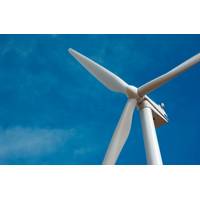Shell to Boost Ormen Lange Field Output
Royal Dutch Shell aims to boost output and recoverable reserves from its Ormen Lange gas field off Norway by installing subsea compressors, the head of its Norwegian operations said on Wednesday.
Output from Shell-operated Ormen Lange, Norway's second-largest gas field and one of the key external gas supply sources for Britain, has been gradually declining since its 2012 peak.
The company postponed plans to artificially increase the field's pressure to pump out more gas in 2014 due to high costs.
With costs having fallen since, the company and its partners, including Norway's Equinor and ExxonMobil , now aim to choose between two proposals to improve output and recoverable reserves, said Rich Denny, head of Shell's operations in Norway.
The proposals are from OneSubsea, a Schlumberger (SLB) company, and TFMC. The Ormen Lange partners plan to make their selection this year, with implementation in the 2020s.
"That will increase the ultimate recovery ... Bringing compression in will (also) increase the annual output and effectively will extend the field life by keeping the annual output going for longer," Denny said.
He declined to specify how big the expected increase in recovery rates or production volumes would be, but said the difference would be "material".
Ormen Lange produced 15.7 billion cubic metres (bcm) of natural gas in 2018, down from a peak of 22.2 bcm in 2012.
In January, when the firm announced its intention to revive the project, it said it had managed to reduce costs by more than 50 percent compared to the first time it considered offshore compression for Ormen Lange.
Costs in subsea gas compression installations can vary, however. A similar Equinor project at the Gullfaks field in 2015 set the firm back $2.4 billion.
Denny said Shell, which sold its shares in the Draugen and Gjøa fields to OKEA, planned to keep its stakes in the Ormen Lange field, Nyhamna gas processing field as well as Norway's largest gas field Troll.
"That will provide us with a stable well-run cash flow coming from Norway, to build new opportunities from that, either in oil and gas or in new energy such as offshore wind, depending on how that business matures," he added.
Earlier this year, Shell decided to invest in a small floating offshore wind project that will test new technology in Norway by 2020, together with Germany's Innogy and Denmark's Stiesdal Offshore Technologies.
By Lefteris Karagiannopoulos











